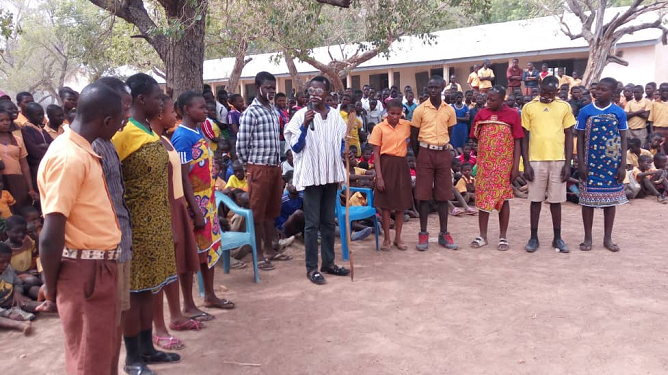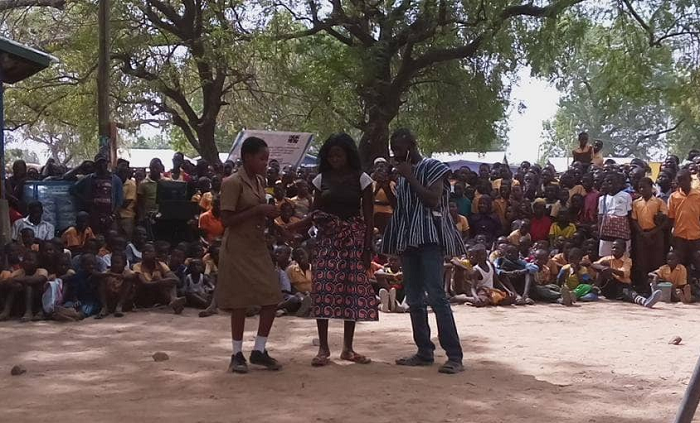
Eliminating cultural barriers to end Obstetric Fistula in Ghana
As the good book says, many are the afflictions of man, but in this case, many are the afflictions of women. Women all over the world face many afflictions (conditions) due to their physiological nature. One of such conditions is the issue of obstetric fistula.
Obstetric fistula is one of the most devastating medical disabilities afflicting women as a result of complications arising from lack of surgical intervention for prolonged labor.
Advertisement
Poor-health seeking behaviours, poverty, lack of awareness, scarcity of skilled birth attendants, unsafe abortion, rape, poor health and referral systems, and poor transportation networks have been identified as some of the major contributory factors of the condition.
Obstetric fistula is a condition mostly seen in women of reproductive age, particularly in the developing countries, including Ghana.
Globally, it is estimated that about two million women have the condition.
The condition, according to the United Nations Population Fund (UNFPA), occurs as a result of prolonged obstructed labour when the head of the baby is not able to pass through the pelvis of the woman. A hole is created between the bladder and the female genital or the rectum and the female genital. This causes the woman to leak either feces and or urine or both through the female genital.
UNFPA 2015 report indicates that over 85 per cent of obstetric fistula cases are caused by prolonged labor. It reports further that fistula can be repaired through surgery and can yield a success rate of over 90per cent when carried out by a trained provider with the proper medical equipment.
International Day
The United Nations (UN) has observed the International Day to end obstetric fistula since 2003. The day, which is marked on May 23, is therefore commemorated annually to raise awareness of the condition and to garner support around the globe.
The theme for this year's International Day is "Leaving no one behind: Let us commit to ending fistula now!”
A statement issued by the UNFPA Executive Director, Dr Natalia Kanem to mark this year's occasion, said the condition "is silently robbing millions of women and girls of their health, hope and dignity."
Cultural practices
In an interview with Madam Mary Azika, a midwife at the Bolga Health Centre blamed the occurrence of the condition in the country on lack of education and some cultural systems that prohibit expectant mothers to seek medical interventions.
She said many women refused to go for antenatal care and also seek the services of professional birth attendants in health facilities because of their beliefs.

a community theatre depicting the health risk of child marriage such as fistula at Sirigu (Photo credit: RISE-Ghana)
She said, for instance, that some expectant mothers did not go to hospitals to deliver and rather preferred to deliver at home to prove that they have not cheated on their husbands before.
That, Madam Azika explained, such beliefs systems led to prolonged labor which also causes the women to suffer obstetric fistula as a result.
"We still have people who don't understand the essence of a hospital," she said, adding that "although antenatal care to delivery services are free, many women still don't come".
She said some people "believe that women who give birth at home are not brave, hence such mentality encouraging some pregnant women to deliver at home instead of health facilities".
Madam Azika said, "in the home delivery, the unprofessional birth attendants don't even know the position the baby is coming and when they keep asking the woman to push, it leads to prolonged labor, resulting in complications".
Awareness campaigns
"Most of the cases reported are due to home delivery," she said, calling for more education and sensitisation for women of reproductive age on the condition and how to prevent it.

a community theatre depicting the health risk of child marriage such as fistula at Chuchulga (Photo credit: RISE-Ghana)
Madam Azika, however, encouraged women with the condition to seek medical assistance since the condition is treatable and also free.
“Because of lack of awareness and education, a majority of our women are unaware of the disease and can’t even take preventive measures and precautions," she noted.
Efforts made
To help raise awareness on the condition and also assist women with the condition to get treatment, the Rural Initiatives for Self-Empowerment (RISE-Ghana), a local NGO based in Bolgatanga with funding support from the Canadian High Commission, UNICEF-Ghana Child Protection, Communication for Development (C4D), Canada Fund for Local Initiatives (CFLI), have sensitised 100 communities in the Upper East Region through the use of participatory theatre and drama to communicate the linkages between child marriage, poor health-seeking behaviour and obstetric fistula.
The Executive Director of RISE-Ghana, Mr Awal Ahmed Kariyama, in an interview, said the most effective way to prevent fistula is to increase access to quality maternal health care services, including family planning, skilled birth attendants and emergency obstetric care.
He added that prevention also entails tackling underlying social and economic inequities to empower women and girls.
He explained that through the campaign, many women have been counseled while others have been given a skill training to empower them after their surgery.
"Working with communities is also key because it ensures women are accepted back into society without being stigmatized," Mr Awal said.



